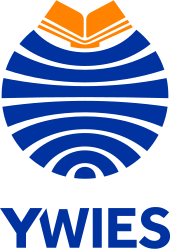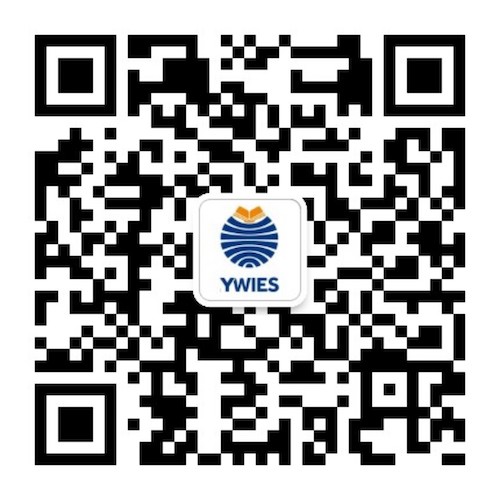Go Back
News
Wechat News
DSE Programme Episode 19
Wechat News
16 Jul, 2025
14 : 35
The Hong Kong Diploma of Secondary Education Examination (DSE) is a widely regarded pathway to higher education. For non-Hong Kong local students hoping to apply to universities in Hong Kong and globally, changes to its private candidate application policy are of significant concern. The Hong Kong Examinations and Assessment Authority (HKEAA) recently announced new regulations for DSE private candidates studying non-Hong Kong curricula for 2026-2028, implementing significant eligibility adjustments. This reform serves as both a response to the current system and an exploration into standardizing future cross-border exam administration.
This article provides an in-depth analysis of these new policies, covering their background, core changes, specific requirements, and impact on stakeholders. Its aim is to offer clear guidance for candidates and parents, empowering them to effectively navigate this significant reform.
The Hong Kong Examinations and Assessment Authority (HKEAA) recently announced new regulations for private candidates taking the 2026-2028 Diploma of Secondary Education (DSE) examinations, introducing significant adjustments to the eligibility criteria for students outside Hong Kong's local curriculum system. This reform primarily addresses three considerations:
-
firstly, to manage examination quality control amid rapid growth in private candidates (exceeding 10,000 in 2025);
-
secondly, to resolve qualification ambiguities exposed by the 2024 judicial review case involving Shenzhen International Curriculum Centre;
-
and thirdly, to support the DSE's internationalization strategy through establishing standardized cross-border examination management systems.
The new regulations profoundly impact mainland training institutions. Unaccredited organizations lose examination registration eligibility, must adjust curricula to meet Form Six equivalence requirements, and face substantially increased operational costs. Market restructuring will concentrate resources toward compliant entities, potentially catalyzing new accreditation consultancy services while accelerating industry consolidation and professionalization.
For compliant dual-track schools like YWIES Tongxiang, the reforms present developmental opportunities. Leveraging international school operating licenses, multi-accredited curriculum systems, and qualification to issue compliant documentation, these institutions can provide comprehensive examination support. Their advantages manifest through familiarity with Hong Kong assessment requirements and established documentation preparation processes, potentially attracting more DSE candidates and enhancing institutional branding.
For candidates and parents, the new regulations necessitate earlier preparation planning. They must evaluate personal circumstances against policy requirements, develop contingency strategies, and allocate sufficient preparation time. When selecting institutions, priority should go to schools with verified accreditation credentials, and strong support systems. Document preparation requires particular attention to early collection, format compliance, and allocating time for authentication and translation. Emergency plans should consider age-related options, understand discretionary application conditions, and maintain communication with examination authorities.
Regarding direct eligibility, the new regulations implement crucial changes. The original policy permitted three candidate categories: DSE retakers, those aged 19 or above by January 1 of the examination year, and students completing curricula deemed equivalent to Form Six. The revised policy effective from 2026 eliminates the third category, retaining only the first two options.This means students under 19 without prior DSE experience must obtain examination eligibility through the "Special Application for Examination Entry" pathway, substantially raising the threshold for this cohort.
Requirements for special applications have been comprehensively upgraded. For students pursuing non-DSE curricula, the new policy mandates that their institutions must provide officially recognized certification documents, detailed curriculum descriptions, and academic transcripts. These institutions must hold recognition from relevant education authorities, have their curricula validated by HKEAA as equivalent to Hong Kong's Form Six standard, and supply verifiable official webpage information. For candidates who have taken equivalent examinations (e.g., A-Levels, IB), the new rules require simultaneous submission of examination score reports and formal certification letters from institutions/examination boards, with such letters bearing official letterheads, institutional seals, and authorized signatories.
Document verification standards have become more stringent. All non-English documents require certified translations, transcripts must display complete course content and grading systems, while school certifications must include comprehensive details such as curriculum duration and syllabi. Notably, the new policy introduces a discretionary mechanism that provides an application channel for candidates who cannot fully meet requirements but can demonstrate sufficient academic capability, though such applications must be submitted in writing before registration deadlines, with final determinations made by HKEAA's Secretary General.
Regarding policy implementation, the existing rules will apply for the 2025 examinations, with the new regulations taking full effect in 2026. HKEAA will launch a dedicated online application platform enabling electronic document submission and real-time progress tracking. Key timelines include: annual registration opening every September, special applications requiring preparatory documentation two months in advance, and final decisions announced within four weeks after registration deadlines.
Looking ahead, DSE private candidate policies may further refine accreditation standards, expand recognized institution lists, and optimize cross-border examination services. Long-term reforms should enhance DSE's international credibility, improve cross-border education quality, and promote examination service specialization. However, initial implementation may encounter ambiguous areas, regional accreditation standard variations, and information disorder during market adjustment.
Overall, these revisions to DSE private candidate regulations represent significant institutional refinement within HKEAA's examination internationalization process. By establishing clearer qualification standards, more standardized verification procedures, and more flexible discretionary mechanisms, the new policy seeks equilibrium between expanding examination participation and maintaining assessment quality. For candidates and parents, understanding policy details, strategically planning preparation pathways, and selecting compliant support institutions become critical to ensuring successful registration. These reforms not only impact current examination cohorts but will also shape the future development trajectory and international standing of Hong Kong's DSE.




